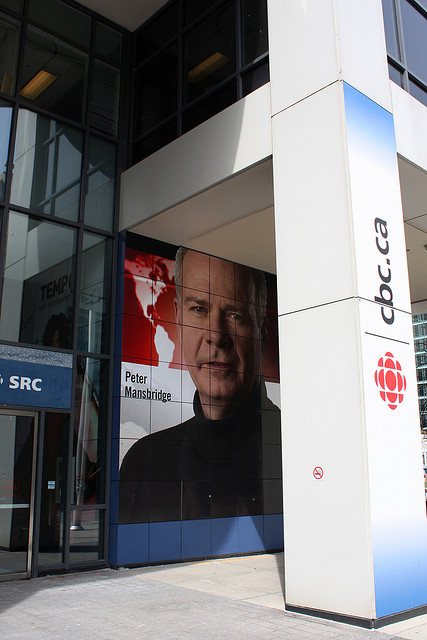Amanda Lang had her Leslie Roberts moment this week, as Roberts had his Peter Mansbridge moment a week before. Lang is CBC’s “senior business correspondent” (titles matter to these people, Lang lovingly repeats hers). She was found taking money for speeches from banks she reports on.
Roberts, Global TV’s star anchor, was massaging clients from his own PR firm on his shows. Mansbridge, I assume, is more familiar but CBC’s idea of stardom is still weird. He and Lang aren’t the only ones there topping up sizable public salaries with gigs that capitalize on their day jobs.
What’s surprising is how these public sector types lead in venal freelancing. What’s even more telling is this: in their self-justifications they rarely mention the public aspect. They don’t say: “These accusations are infuriating for someone as committed to public service as I am.” (Just as Jian Ghomeshi never said: “For a feminist like me, I find these charges of sexual abuse horrifying.” It was a tipoff.)
But beware. In the (relative) titillation of seeing public figures drop like bowling pins, it’s easy to lose sight of the ball. The ball is CBC management. We don’t recognize their faces but they’re responsible for the serial disasters. They cower in the shadows behind their “stars.” They calculated, under the Ghomeshi pressure, how far up they had to go for a victim who’d quiet the baying. They selected director of radio Chris Boyce, who’s now “on leave.” When they speak, they explain their guiltlessness and the minutiae of rules they’ve installed about self-enrichment. Like their stars, they rarely reference public values.
This wasn’t always so of culture bosses in the public sector. It was once an arena for people with lofty ambitions. Canada’s other main public cultural institution, the National Film Board, was built by John Grierson in the 1940s. He was a titan of global film. He acted imperiously. He recruited young Canadians and dazzled them with his ego and vision. One said, “A day never passed at the Board that Grierson didn’t remind us we were there to serve the people of Canada.”
Among his recruits was Sydney Newman. Newman went to the U.K. and worked in private TV, creating The Avengers. Then the (public) BBC hired him as head of drama. He revelled. He created Doctor Who, now in its 51st brilliant year. For the 50th anniversary, BBC did a film about Newman! He was its superhero.
The point is, as economist Mariana Mazzucato says, “There is nothing in the DNA of the public sector that makes it less dynamic than the private sector.” That’s a breathtakingly counter-intuitive claim today but it would’ve been self-evident in the era when the CBC and NFB were born — and for decades after.
You can pinpoint the moment of change: the 1980s. Reagan and Thatcher there; Brian Mulroney as prime minister here. Government was proclaimed the problem; it should get out of business’ way. High-level public servants like Derek Burney got the memo; they laid waste to the public sector, then moved to corporate posts. The pusillanimous, self-hating era among public servants began.
Mazzucato doesn’t actually write about culture; her topic is innovation in areas like IT or green tech. That’s where economies thrive or die. She takes as one stunning example the iPhone. Every crucial piece of it, she says, was developed by public sector research and leadership (the Internet, touch technology, GPS, Siri). Apple took those achievements and ran with them. But because the prevailing mythology says the public sector sucks, it doesn’t get credit. It also doesn’t get concrete returns on investment which would enable it to keep leading along the innovation path. She says unless steps are taken “to upgrade, not downgrade the status of government,” those positive advances won’t be made in the future. The private sector is too risk-averse for it.
Her insights apply as much or more to culture. The U.K.’s most dynamic sector is probably culture, where the BBC still takes the lead with innovative product like Sherlock, and others follow. Denmark has vibrant state-led operations in both clean technologies and TV drama (The Killing). What happened to us? Why did we end up with the runts of the litter in charge?
This column was first published in the Toronto Star.
Photo: Paul Gorbould/flickr



